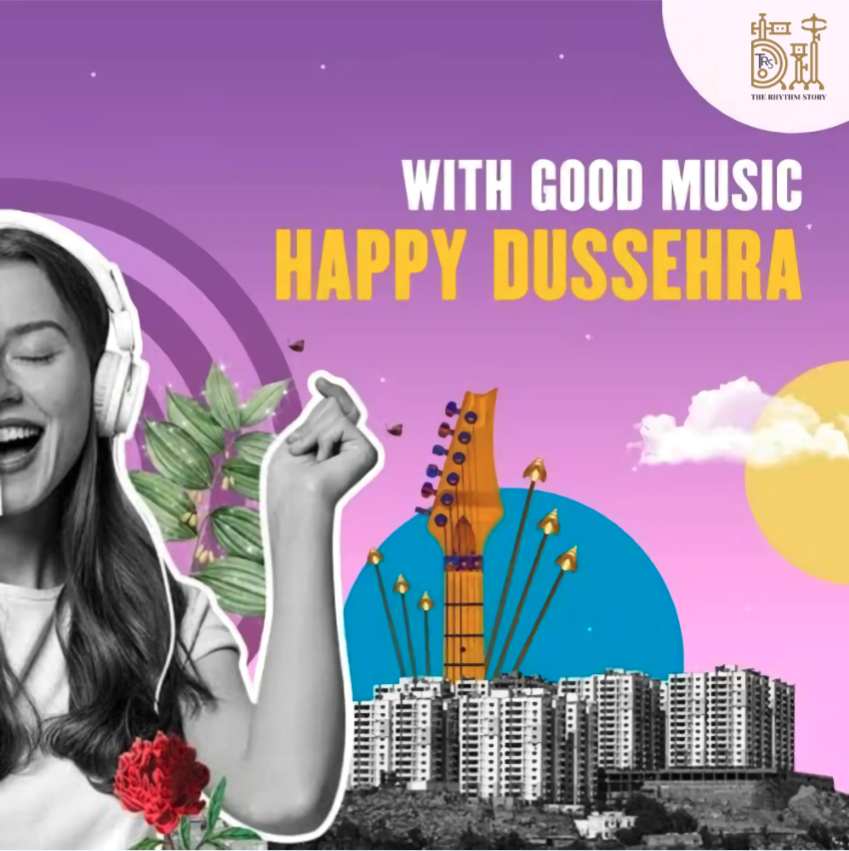Dussehra, also known as Vijayadashami, is one of the most significant Hindu festivals celebrated across India, symbolizing the victory of good over evil. Rooted in the epic tale of the Ramayana, Dussehra commemorates Lord Rama’s triumph over the demon king Ravana. While the festival is rich in tradition, rituals, and cultural practices, one of its most vibrant and compelling elements is music. The connection between music and Dussehra not only enhances the celebratory atmosphere but also deepens the spiritual experience of the festival.

Dussehra, also known as Vijayadashami, is one of the most significant Hindu festivals celebrated across India, symbolizing the victory of good over evil. Rooted in the epic tale of the Ramayana, Dussehra commemorates Lord Rama’s triumph over the demon king Ravana. While the festival is rich in tradition, rituals, and cultural practices, one of its most vibrant and compelling elements is music. The connection between music and Dussehra not only enhances the celebratory atmosphere but also deepens the spiritual experience of the festival.
The Role of Traditional Music
At the heart of Dussehra festivities is traditional music, which plays a crucial role in setting the mood and evoking emotions associated with the celebration. Devotional songs, known as bhajans, are sung to honor deities, particularly Lord Rama, Sita, and Hanuman. These songs often recount episodes from the Ramayana, celebrating the virtues of righteousness, courage, and devotion. The melodies are usually simple yet deeply moving, allowing participants to connect with the divine and reflect on the moral teachings of the epic.
Folk music also thrives during Dussehra, with regional variations reflecting local culture and traditions. In various parts of India, unique musical styles come into play, creating a rich tapestry of sound that characterizes the festival. From the dhol beats in North India to the nagaswaram tunes in South India, each region infuses its local flavor into the celebrations, making the festival a melting pot of musical heritage.
Music in Ramlila Performances
One of the most popular and visually captivating aspects of Dussehra is the Ramlila—a dramatic reenactment of the Ramayana. This theatrical performance brings the epic tale to life, with actors portraying characters such as Rama, Sita, and Ravana. Music is integral to Ramlila, with live orchestras providing a dynamic backdrop to the action. Traditional instruments like harmoniums, tablas, and dholaks accompany the dialogue, creating an immersive experience for the audience.
The interplay of music and drama enhances the emotional intensity of the performances. As the story unfolds, the music shifts to match the mood—joyful tunes during celebratory scenes, somber melodies during moments of tension, and heroic anthems during Rama’s victories. This synergy between music and performance captivates audiences, drawing them into the narrative and encouraging communal participation.
Processions and Celebratory Music
Dussehra is marked by grand processions where effigies of Ravana, along with his brothers Meghnath and Kumbhkaran, are paraded through the streets. These processions are lively and colorful, with music playing a pivotal role in energizing the atmosphere. Drummers and musicians perform traditional beats, urging people to join in the festivities. The rhythmic sounds not only uplift spirits but also serve as a call to the community to come together in celebration.
The music during these processions often includes folk songs that resonate with themes of valor and triumph. As crowds gather to witness the burning of the effigies—symbolizing the destruction of evil—the sound of music amplifies the sense of victory, creating a shared moment of joy and reflection.
Spiritual Connection
Beyond entertainment, music during Dussehra serves a profound spiritual purpose. It fosters a sense of community and belonging, allowing individuals to express their devotion collectively. Through singing, dancing, and participating in musical performances, people connect with their heritage and spirituality, reinforcing the values of righteousness and compassion that the festival embodies.
In conclusion, the connection between music and Dussehra is multifaceted, enriching the festival’s cultural, emotional, and spiritual dimensions. From traditional bhajans to the lively beats of Ramlila and processions, music breathes life into the celebrations, making Dussehra a vibrant and unforgettable experience that resonates across generations.
#therhythmstory | Significance of Music during Dassehra | Dassehra Wishes

